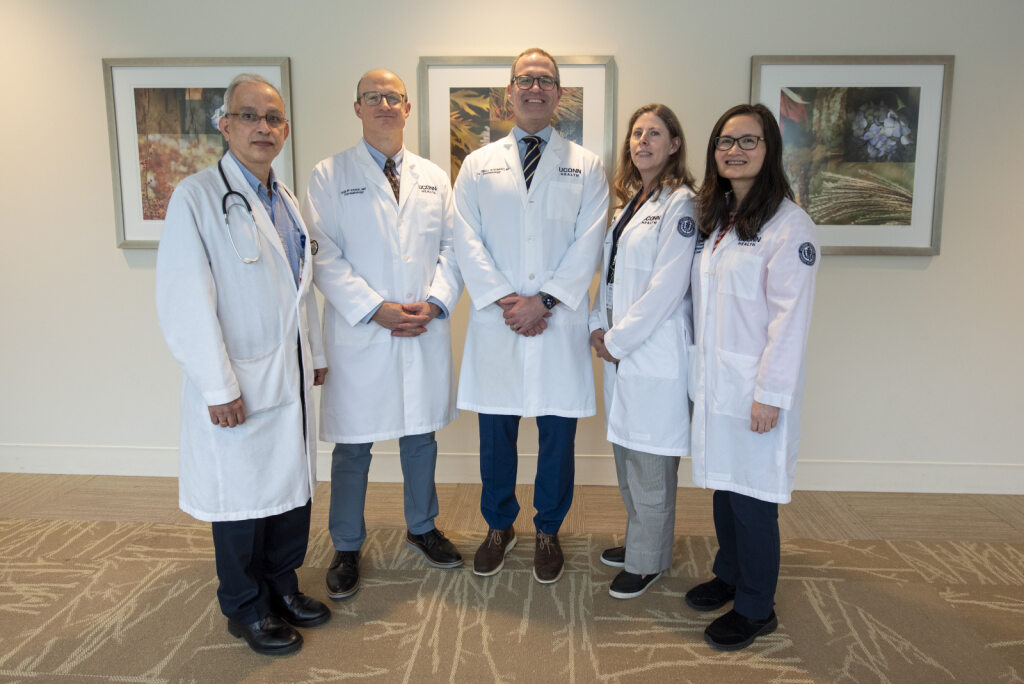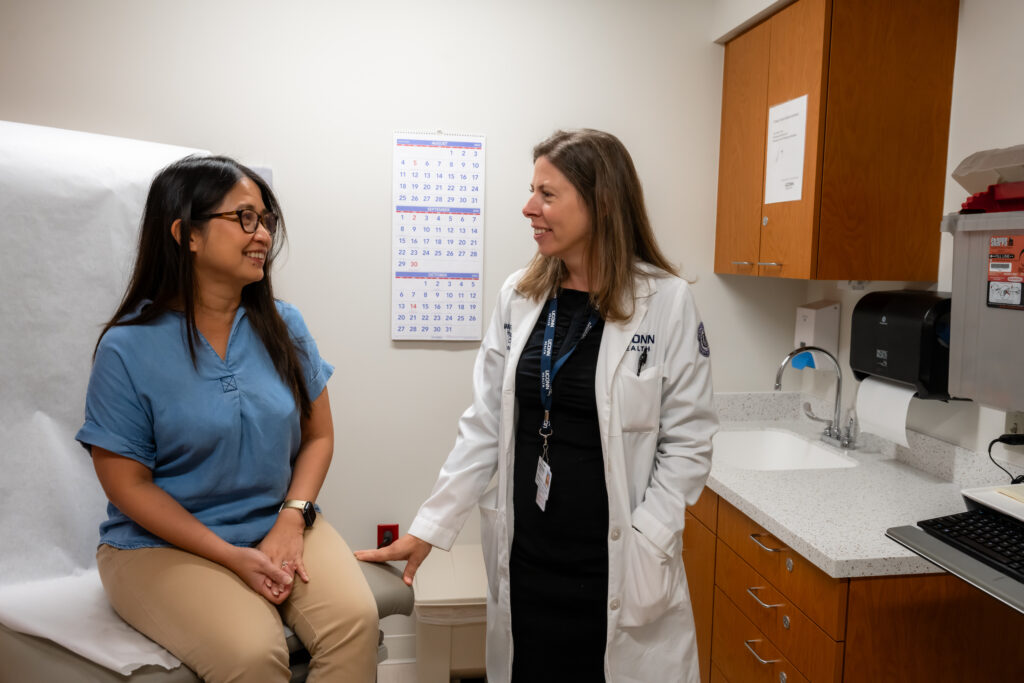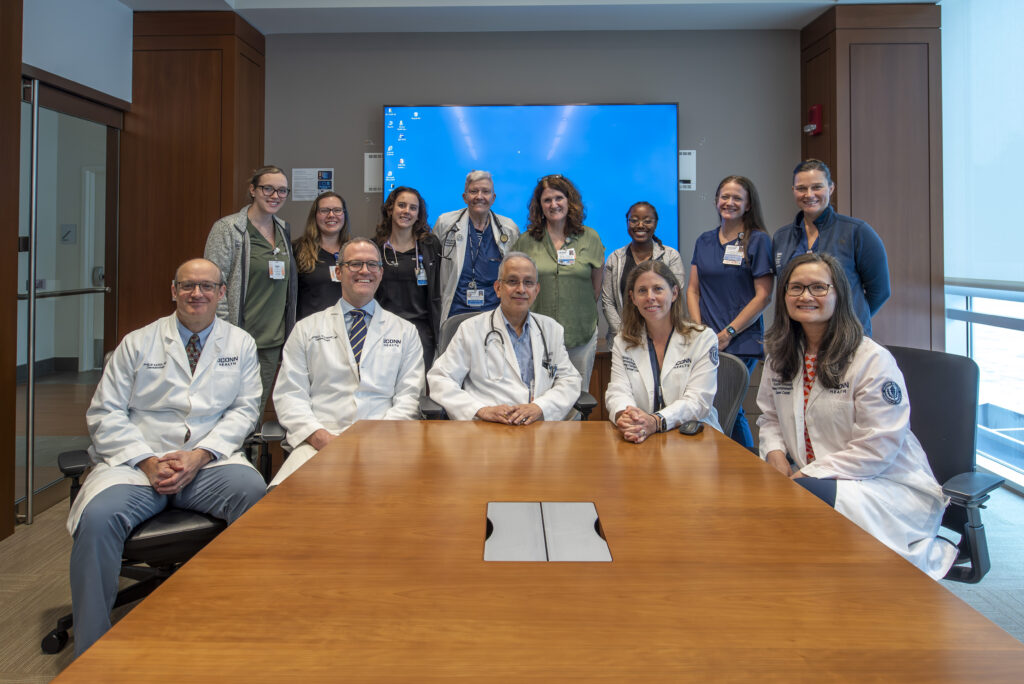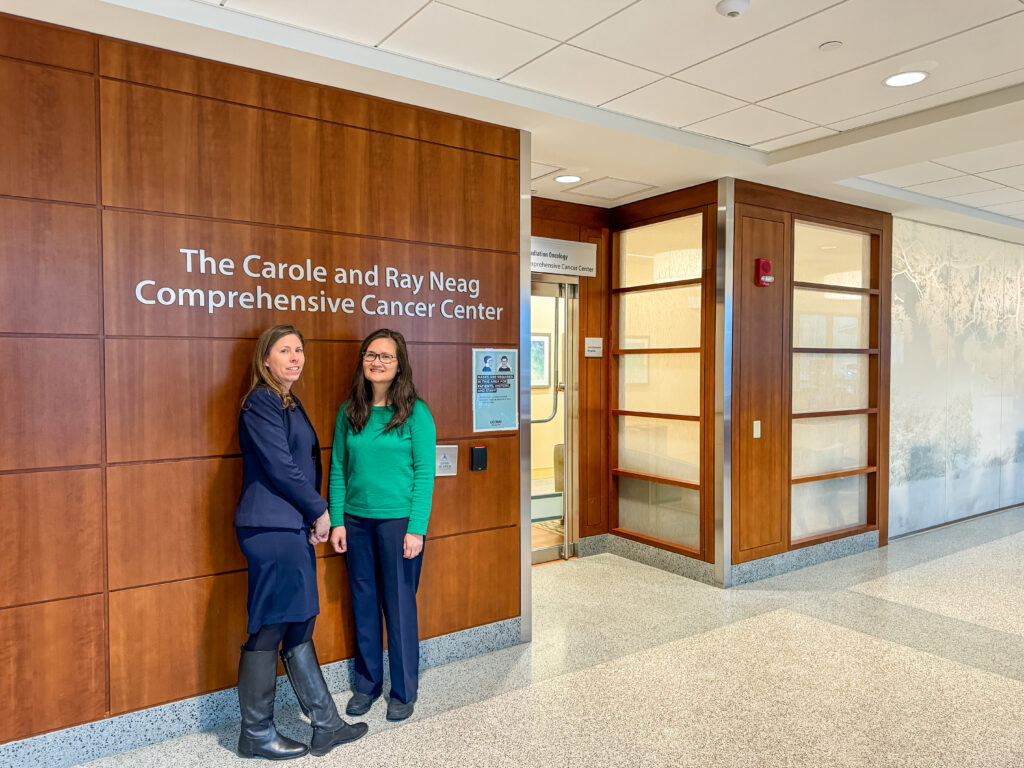Giao Q. Phan, M.D., FACS, Margaret K. Callahan, M.D., Ph.D.

Written by Steven Blackburn
UConn Health in Farmington has developed a specialized melanoma practice unique to central and northern Connecticut; it resembles well-known academic programs from large institutions that are normally located in New York and Boston. Many Connecticut facilities provide melanoma treatment north of New Haven, but most surgeons and medical doctors in this area divide their time amongst other specialties.
It’s rare to find doctors like UConn Health’s surgical oncologist Giao Q. Phan, M.D., FACS, and medical oncologist Margaret K. Callahan, M.D., Ph.D. They each have been devoted for more than a decade to taking care of patients with melanoma. In addition, their entire team meets weekly to ensure they provide a continuum of care for UConn Health patients with advanced melanoma and other skin cancers.
“When a patient sees one of us, they see all of us,” says Dr. Phan. “We make sure that it’s a team effort.”
This dedication to melanoma care at UConn Health is why Dr. Callahan transferred there to become chief of the Hematology/Oncology Division after nearly a decade at Sloan Kettering. What caught her interest was Dr. Phan’s work to create a robust melanoma program mirroring what she and another medical oncologist did at VCU Massey Comprehensive Cancer Center in Virginia.
“One of the reasons why I wanted to come to UConn Health was to join Dr. Phan as she builds a melanoma program because she has a very comprehensive understanding of melanoma in addition to having a surgical perspective,” says Dr. Callahan. “Not every surgeon has a specialized interest in melanoma or is devoted to research and clinical trials like she is. It was a good match.”

Rare Multidisciplinary Approach to Treat Melanoma Beyond Dermatology
Melanoma is a deadly form of skin cancer that anyone can get, though some are more prone to it than others. Even though only 1% of skin cancer is usually attributed to this specific form of the disease, melanoma is the cause of a large majority of skin cancer deaths. Luckily, it is curable, especially if found in the early stages. However, melanoma can easily grow and spread to other parts of the body. Once this happens, it gets increasingly difficult to treat and requires a different skill set than what dermatologists have. This is when UConn Health’s team of surgical oncologists and medical oncologists gets involved.
Referrals to the melanoma team are generally done by the patient’s dermatologist (and occasionally the patient’s primary care physician). These calls are screened by UConn Health’s nurse navigators, who assess the patient’s needs, arrange appointments with the melanoma team, ensure that appropriate records are available and help guide the patient through the potentially stressful process.

Performing Advanced Surgical Procedures
In most cases, patients first see Dr. Phan for excision of the melanoma and “sentinel” lymph node biopsy—such as sampling of the first draining lymph node to see if the melanoma has spread. This is beyond what can be done in a dermatologist’s office. Dr. Phan went through five years of general surgery training and then an additional two years of surgical oncology fellowship to learn how to remove cancers and treat patients with cancers. More importantly, she has spent over 15 years taking care of patients with melanoma.
If it is determined that a patient’s disease is more advanced or has spread to lymph nodes or beyond, then the melanoma team quickly switches gears to systemic therapy with Dr. Callahan or Dr. Upendra Hegde, another melanoma medical oncologist at UConn Health. The systemic therapy aims to treat the whole body and can address tumors in lymph nodes or major organs like the brain, lungs or liver. Sometimes multiple treatment modalities are needed, such as systemic therapy first, then surgery (or vice versa), followed by radiation therapy. Thus, every patient gets a personalized treatment plan tailored to their disease status and preferences.
Comprehensive Therapies and Medicines to Treat and Prevent Melanoma
Beyond surgery, UConn Health combats melanoma with immunotherapy, which uses a patient’s own immune system to fight their cancer. Both Drs. Phan and Callahan are especially passionate about this form of treatment, having started their medical careers by pursuing immunotherapy. “When we talk about immunotherapy, we are referring to a number of therapies that activate the immune system; the most commonly used of these are the FDA-approved ‘immune checkpoint inhibitors,’ which are antibodies that target immune regulating molecules like PD-1 and CTLA-4,” says Dr. Callahan. “There’s also an immunotherapy approach that has to do with training and transferring immune cells in and out of the body to fight cancer.”
UConn Health also offers FDA-approved intralesional therapy with Imlygic, a local delivery of immune stimulants. “This form of therapy is for people whose melanoma walks along the skin or soft tissue locally instead of hopping into bloodstreams and into the lungs or liver,” says Dr. Phan. Although not immediately life-threatening, this form of “in-transit” melanoma can still rapidly spread beyond what surgical excision can control, so systemic therapy is still preferred. But if that’s not an option, this drug can be directly injected into specific tumors and cause tumors to shrink or even go away completely.
Another major therapeutic advancement that UConn Health uses involves targeted inhibitors. These are drugs precisely designed to address specific mutations in melanoma and stop aberrant signaling that can lead to tumor growth. These drugs can be used as adjuvant or “prevention” after surgery to decrease risks of recurrence as well as to treat patients with known tumors.
But, like most cancers, the key is to detect melanoma early, so it can be more easily removed and cured with simpler surgery. “Once it is more advanced and goes to lymph nodes and/or other organs via the blood, it is much more difficult to remove the last cancer cell, which may be invisible but may grow later to cause problems for the patient,” says Dr. Phan.
“The good news is that for the more complicated cases, there are new advanced surgeries and systemic treatments that patients should be offered so they can take advantage of them,” Dr. Callahan adds. “And if we discover a new drug that cures all melanoma, I think Dr. Phan and I will be happy and find something else to do.”
Steven Blackburn is a freelance writer with more than 10 years of journalism experience in various fields, including U.S. education and Connecticut community interest stories. He lives in Winsted.






More Stories
From Hall High to the Heart of Saint Francis: Dr. DeSimone Comes Home
Jamie Shawver, D.O.: The Modern-Day Family Doctor
UConn Health Achieves Excellence in Eye Care in Record Time: Edmund P. Farris, M.D. Chief, Division of Ophthalmology